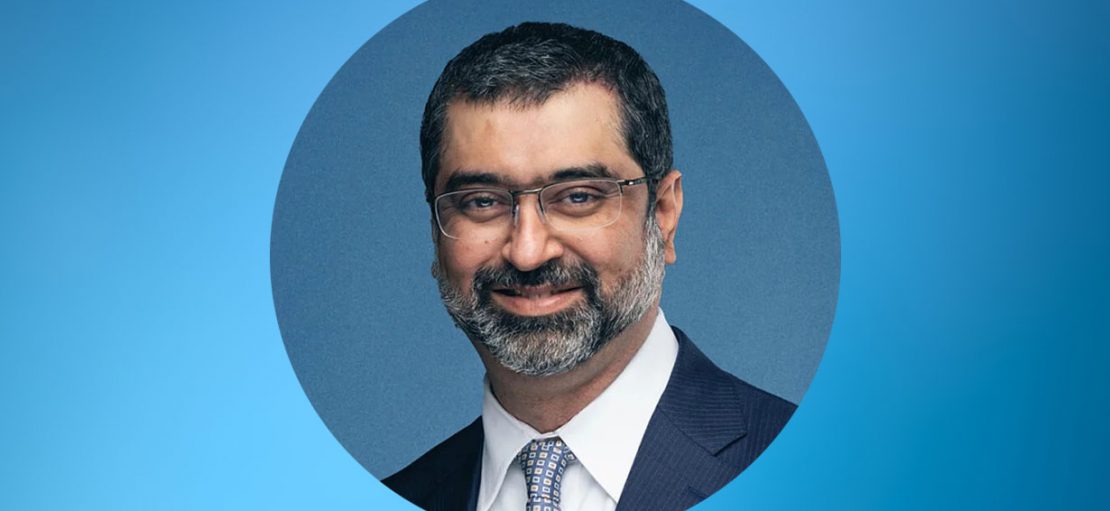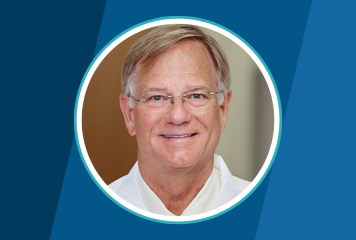Muhammad Syed, MD, FACP, is the Medical Director of the Sleep Medicine Department and the Fellowship Director of the Sleep Medicine Program at the University of Florida (UF). He also serves as an Associate Professor in the Department of Pulmonary, Critical Care and Sleep Medicine at UF. Dr. Syed is ABIM Board Certified in Internal Medicine and Sleep Medicine. He previously served as a member of the Sleep Medicine Item-Writing Task Force before joining the Sleep Medicine Traditional, 10-Year Maintenance of Certification (MOC) Exam Approval Committee in July 2024.
Can you tell me about your journey to becoming a physician and choosing sleep medicine to specialize in?
I come from a family largely dedicated to the human service profession. My father, a respected cardiologist, played the most significant role in my decision to become a doctor. Observing the way he cared for his patients—always ready to assist as a primary care physician despite his specialization—inspired me. The respect he commanded and the weight his opinion carried motivated me to pursue a career in medicine.
What do you find most rewarding about your work?
The most rewarding aspect of my work is helping people recover when they come in with fatigue, tiredness and sleepiness.
When patients follow clinical advice and later tell me, “Hey, I’m feeling fantastic,” it’s incredibly rewarding and truly makes my day. It feels like I’ve earned my paycheck. At the end of the day, we do many things as part of our job, but nothing can replace that feeling of genuine contentment.
What are some of the challenges of providing and accessing sleep medicine in underserved communities and community health care?
As with other medical specialties, our biggest challenge in providing care to underserved communities is meeting the needs of financially disadvantaged individuals who cannot afford specialized medicine services. Programs should investigate offering sliding-scale payment plans or partnering with organizations that help with financial assistance. Some organizations are doing excellent work by donating CPAP machines to patients, but we need more programs like these, especially at the initial level of care.
Another challenge related to access to care for underserved populations is the integration of mental health therapy with sleep treatment modalities. For example, Cognitive Behavioral Therapy (CBT-i) is the top treatment for insomnia. In our modestly sized sleep program, in North Florida, we are collaborating closely with the Clinical Psychology team to provide these services to our patients. However, I do recognize that this integration may not be available in all locations, which highlights the need to make resources and programs more widely available.
What are some of the ways you’ve worked to ensure equitable healthcare access to sleep medicine?
I have implemented several initiatives to promote equitable access to sleep medicine. First, I have organized outreach events and participated in talk shows and programs aimed at underserved communities to raise awareness about sleep disorders and their impact on health, and available treatment options. Second, I have introduced telehealth in my program to reach patients in remote or underserved areas. It has helped communities near our hospital overcome barriers like transportation. Third, I collaborate with primary care providers to screen for sleep disorders, helping to identify sleep issues in patients who may not actively seek help due to access barriers. This enables the population to recognize sleep problems even when they may not actively seek out help due to barriers. Fourth, I prioritize cultural competency in our daily work. This includes training staff to understand the unique sleep-related concerns of the diverse population and providing patients with materials in multiple languages.
What made you interested in joining the Sleep Medicine Exam Approval Committee? What are you hoping to learn from the experience and contribute to the role?
I have enjoyed teaching and training students for several years, and I have been fortunate to receive recognition in the form of teaching awards throughout my career. These accolades, along with the encouragement and support from my mentees, inspired me to apply for a position on the Sleep Medicine Exam Approval Committee. I believe that my 10+ years of interacting with students, training residents and fellows, participating in the Item-Writing Task Force and classroom teaching will bring a valuable perspective to the Approval Committee. Being part of the Approval Committee, I believe that I will have the opportunity to further develop my skills from a centralized viewpoint contributing to broader educational goals.
How do you see the role of board certification in physician learning as well as in fostering critical thinking skills?
In my view, board certification encourages critical thinking and learning by requiring candidates to stay up-to-date with the latest medical research, guidelines and treatment modalities. The rigorous exam allows physicians to apply their knowledge to complex patients. The Maintenance of Certification process promotes continuous learning and critical thinking among physicians, as they consistently analyze new information and enhance their practices to provide the best care possible.
On a lighter note, passing the exam feels like earning a badge of honor that says, “I’m ready to offer the best possible care to my patients.”
One of your key roles is serving as a mentor for residents and fellows. What is some advice you always give your mentees, or something you try to impart in your interactions with them?
I advise them to say what comes to their mind, and that I’m not here to judge them, I’m here to teach them. It’s a bidirectional process. Even if what you’re saying is wrong, say it, because if you don’t clear the confusion in your head, you’ll never get an understanding of the thing you’re trying to ask. Having open communication and open dialogue, and making sure they understand where I’m coming from, helps me to help them.
Second, I ingrain in them that no one knows everything, and I don’t expect them to know everything. I set the expectation that they can communicate with me and learn in an environment where they won’t feel judged. This is critical for a healthy learning environment. It’s a process of learning from both ends; if I don’t know something, we look it up and touch base in the next clinic. As for that process, the less judgmental you are as an instructor, the better off you are in training them.
You’re passionate about raising awareness of the importance of sleep. What is something you wish more patients and physicians knew about sleep medicine?
I consider sleep the sixth vital sign. We all know about body temperature, pulse, heart rate and weight, but no one asks about sleep. Yet one-third of our life is spent sleeping. If we don’t discuss the one-third of our lives that is spent in a state where things can happen, we’re doing an injustice to our field. From my end, it’s important to educate both the patient population and their providers.
When you educate a patient, they become an advocate; they will go out and help people. Physicians need to know sleep medicine, too, because their patients come to them for advice. One of my projects has been to teach patients about what they will experience in the sleep lab. I teach them what to expect and it makes a difference: people who were educated were more comfortable when they came for testing and had a better experience. That’s just one example of how important education is. Regarding sleep and the population, the more you connect with the population the easier it is for them to understand why the things you are suggesting to them are important.
Finally, what is the most important thing you want diplomates to know about you? I would like people to know that I am deeply committed to patient care which includes advocating and working for equitable access to health care for all, creating a supportive environment where patients feel heard and engaging in continuous learning to bridge the gap between scientific advancements and their practical application.



